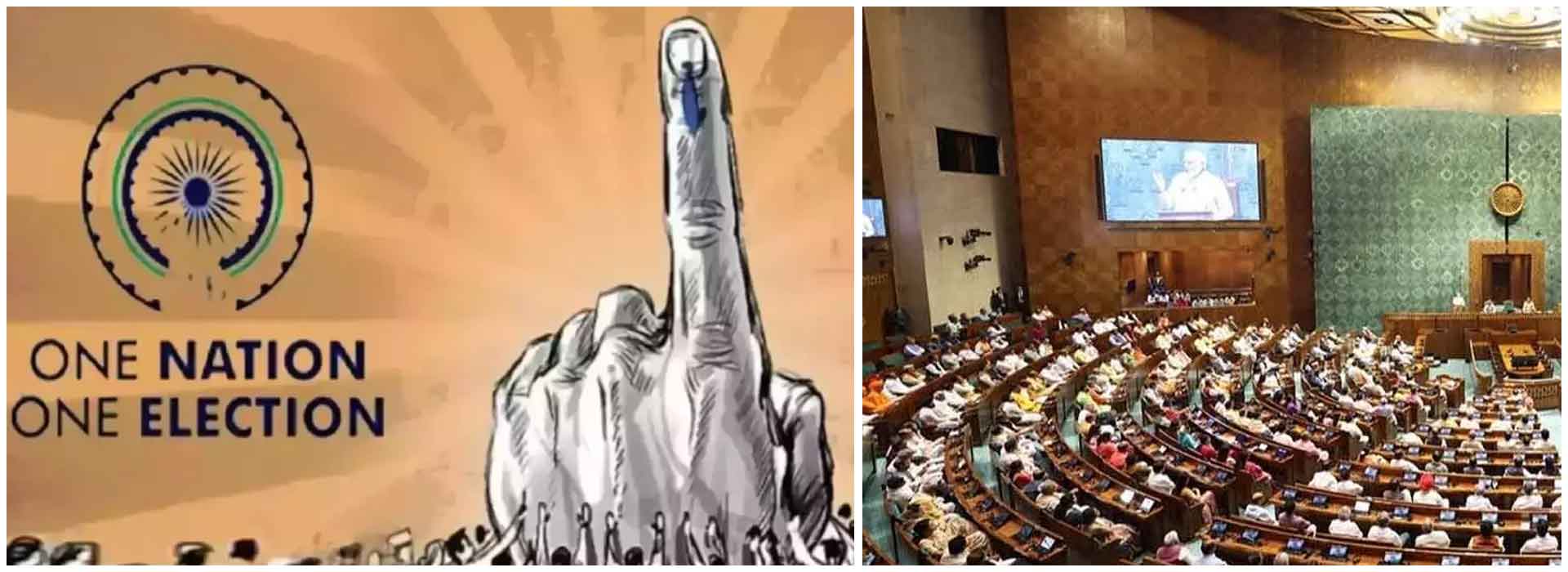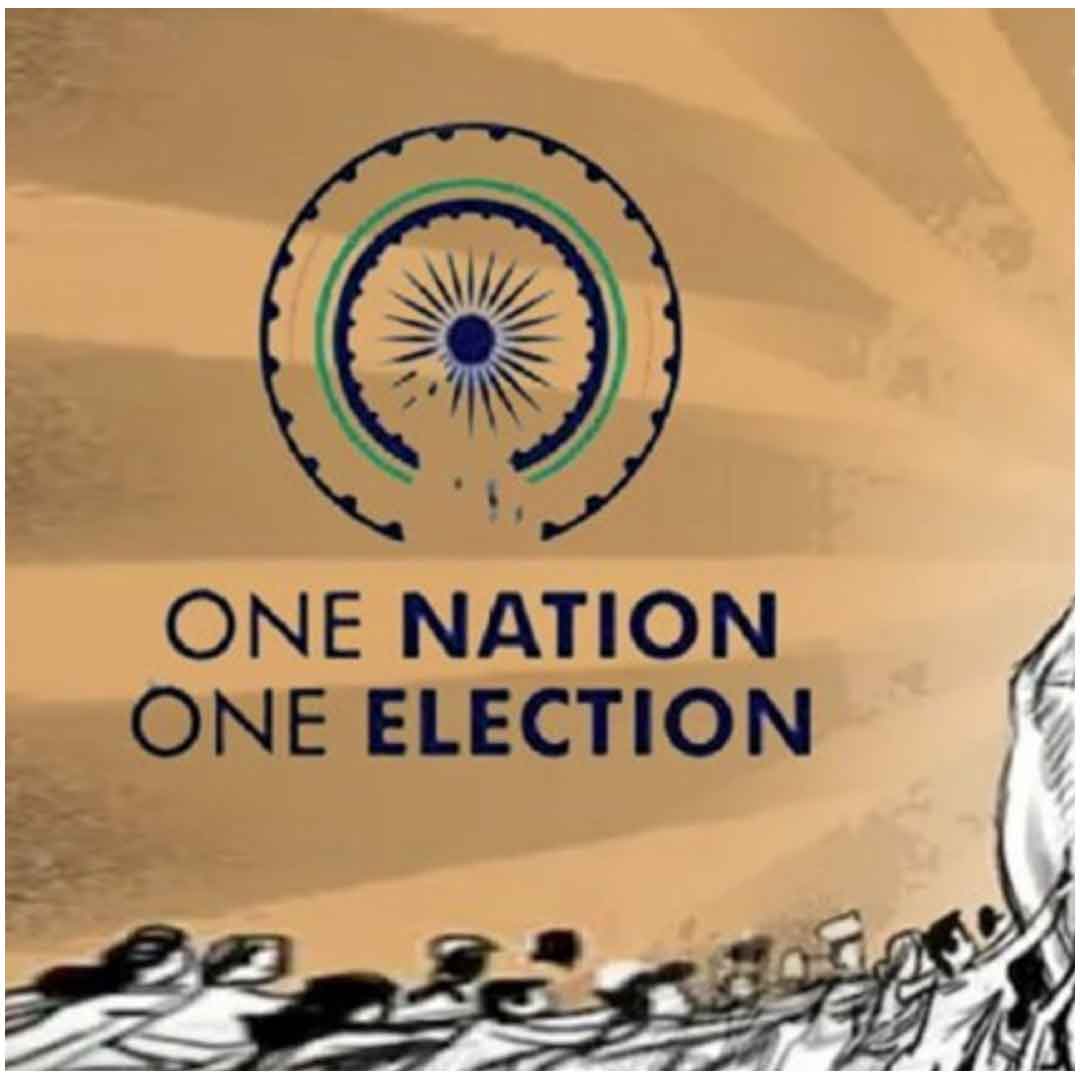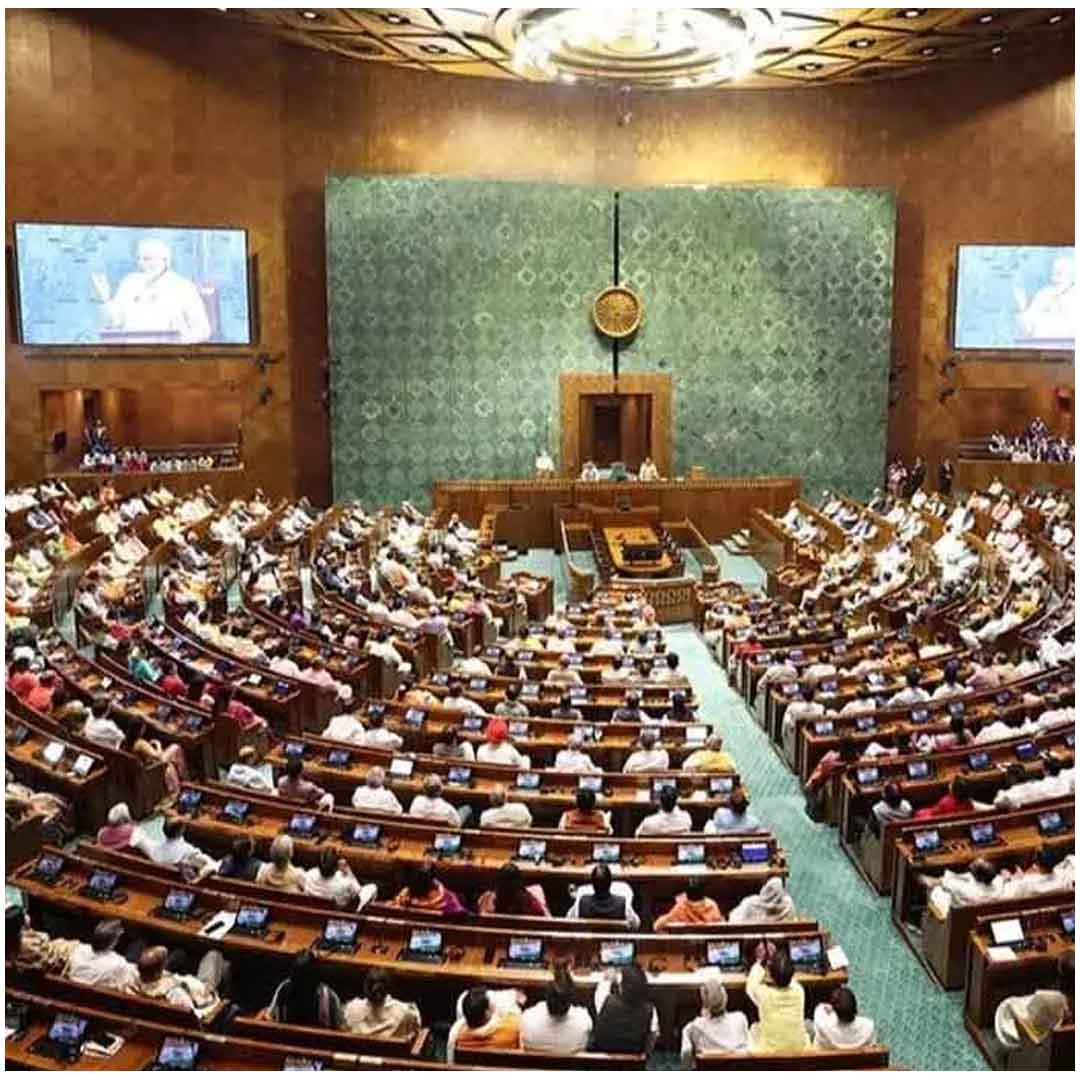Parliament to Discuss ‘One Nation, One Election’ Bills as Congress, Shiv Sena Demand Full House

The idea of ‘One Nation, One Election’ has once again become a hot topic in Indian politics. The central government is gearing up to discuss related bills in Parliament, sparking widespread debate across party lines. This ambitious proposal, if implemented, could potentially change the way India conducts its democratic processes. However, opposition parties, including Congress and Shiv Sena (UBT), have raised significant concerns, demanding a full discussion in Parliament with all members present. Let’s break down what this proposal entails, why it is so contentious, and what its implications could be for India’s democracy.
What Is ‘One Nation, One Election’?
The concept of ‘One Nation, One Election’ advocates for synchronizing the elections for the Lok Sabha (the lower house of Parliament) and state assemblies across the country. Currently, India’s electoral calendar is staggered, meaning elections are held almost every year in some part of the country. Under this proposal, voters across the nation would head to the polls on a single day (or a short election window) to choose both their central and state government representatives.

The primary argument in favor of this system is that it could save time, money, and resources. Election-related activities, including campaign rallies and logistical arrangements, are significant undertakings that disrupt normal governance and incur hefty expenses. By consolidating elections, the government aims to streamline the process and ensure more effective governance.
Why Is the Proposal Being Discussed Now?
The idea of simultaneous elections is not new. It was practiced in India until 1967 when the electoral cycle became unsynchronized due to the dissolution of certain state assemblies and subsequent midterm polls. Over the years, this divergence has grown, leading to a nearly perpetual election mode in the country.
The current government has brought the proposal back into the spotlight, stating that simultaneous elections could reduce the economic burden of frequent polls and improve policy implementation by eliminating the constant election code of conduct restrictions.
The proposal has been championed by Prime Minister Narendra Modi and is seen as part of a broader effort to introduce electoral reforms. The Parliament has been called upon to discuss related bills, signaling a serious attempt to push the proposal forward.
Why Are Opposition Parties Opposed?
While the ruling government sees ‘One Nation, One Election’ as a progressive reform, opposition parties are far from convinced. Congress and Shiv Sena (UBT), among others, have demanded that the bills undergo thorough scrutiny with input from all members of Parliament. They argue that a full-house discussion is essential for such a transformative proposal that could impact the core structure of India’s democracy.
https://twitter.com/ani_digital/status/1868866449500246452
Opposition parties have raised several concerns:
- Federalism at Risk: India is a federal country with distinct central and state governments. Critics argue that holding simultaneous elections could blur the distinction between central and state issues. This might undermine the autonomy of state governments and shift the focus toward national parties and narratives.
- Logistical Challenges: Organizing elections for over a billion voters simultaneously is a mammoth task. It would require extensive preparation, voter education, and resources. Opponents question whether the Election Commission of India is equipped to handle such a massive overhaul of the electoral process.
- Democratic Representation: Another concern is that simultaneous elections might limit the ability of voters to hold their governments accountable. Currently, staggered elections allow voters to reassess their decisions and voice dissatisfaction with their representatives more frequently.
- Disruption of Existing Systems: Implementing ‘One Nation, One Election’ would require constitutional amendments and significant legal changes, as the current terms of state and central governments vary. This transition could create disruption and uncertainty.
Congress and Shiv Sena’s Stand
Congress and Shiv Sena (UBT) have been vocal about their opposition to the proposal. They argue that any such bill should be debated with all elected representatives present. This demand stems from the belief that a full-house discussion would ensure transparency and inclusivity, allowing every viewpoint to be heard.

Congress leader Rahul Gandhi has raised concerns about the impact of simultaneous elections on federalism and diversity. Similarly, Shiv Sena (UBT) chief Uddhav Thackeray has emphasized the need to prioritize pressing issues such as inflation, unemployment, and economic recovery over sweeping electoral reforms.
Both parties have also expressed skepticism about the government’s intentions, accusing it of using the proposal as a distraction from more urgent issues. They contend that while the concept may appear beneficial on paper, it requires careful analysis and consensus to avoid unintended consequences.
Potential Benefits of Simultaneous Elections
Despite the opposition, proponents of ‘One Nation, One Election’ believe it offers several advantages:
- Cost Savings: Conducting elections is expensive. From deploying security forces to setting up polling booths, the financial burden is significant. Simultaneous elections could reduce these costs considerably.
- Administrative Efficiency: Frequent elections disrupt governance as officials and resources are diverted toward election duties. Holding elections once every five years could allow governments to focus on governance without constant interruptions.
- Higher Voter Turnout: Advocates argue that a unified electoral process could lead to better voter awareness and higher participation since citizens would only need to vote once in a consolidated election.
- Policy Stability: With elections out of the way for five years, governments could implement long-term policies without the constant pressure of upcoming polls.
Challenges and the Road Ahead
While the idea of ‘One Nation, One Election’ has its merits, implementing it is easier said than done. It requires significant legal and constitutional amendments. Articles 83, 85, 172, 174, and 356 of the Constitution would need to be revised, and political consensus would be crucial to push the reform through.
Moreover, the logistical challenges cannot be ignored. India is one of the world’s largest democracies, and aligning the electoral cycles of all states and the center would demand meticulous planning. Questions about handling emergency situations, such as the premature dissolution of a government, also remain unanswered.
Public Sentiment and the Larger Debate
The public’s opinion on ‘One Nation, One Election’ appears to be divided. While some citizens are drawn to the idea of reduced election fatigue and cost savings, others worry about its potential impact on regional representation and democratic accountability.
The debate also brings to light larger questions about the balance between electoral efficiency and democratic values. Is it worth compromising the federal structure for the sake of uniformity? Can the logistical hurdles be overcome without compromising the sanctity of elections?
Conclusion
The proposal for ‘One Nation, One Election’ has reignited a crucial debate about the future of India’s democracy. While the central government is keen to advance the idea, opposition parties, including Congress and Shiv Sena, are urging caution and demanding detailed deliberations.
Ultimately, the success of this proposal will depend on achieving a broad consensus that addresses the concerns of all stakeholders. With the Parliament set to discuss related bills, the coming weeks could shape the trajectory of this significant electoral reform. For now, the focus remains on ensuring that the discussion is inclusive, thorough, and reflective of India’s diverse democratic ethos. Whether ‘One Nation, One Election’ becomes a reality or remains a contentious idea, it’s clear that the conversation around it is far from over.
Click to read the full article





